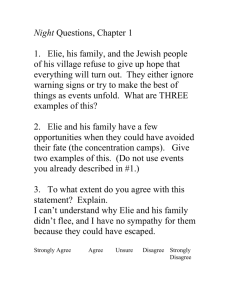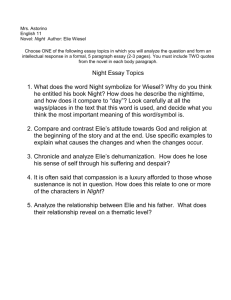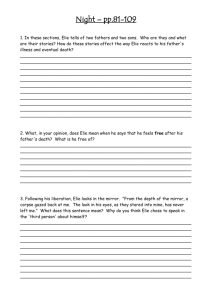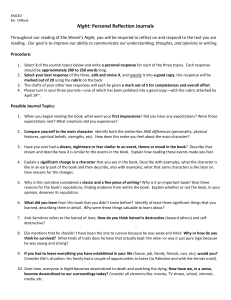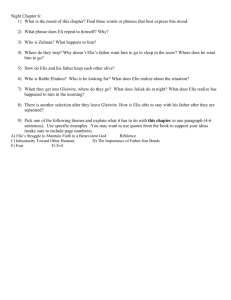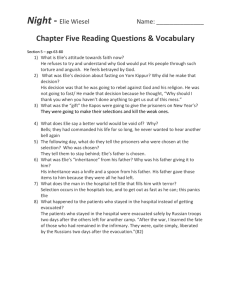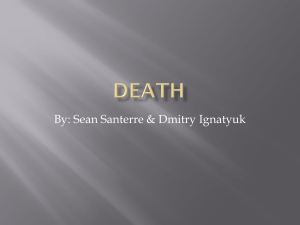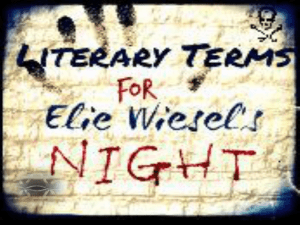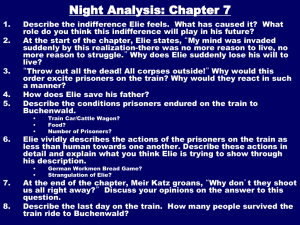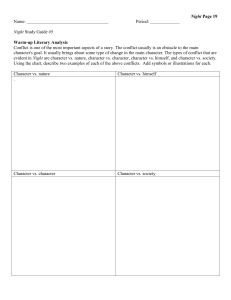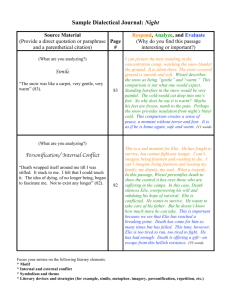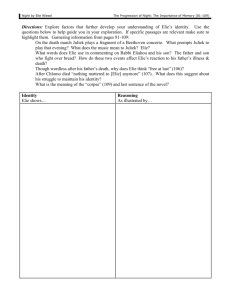Night Study Guide: Figurative Language & Vocabulary
advertisement
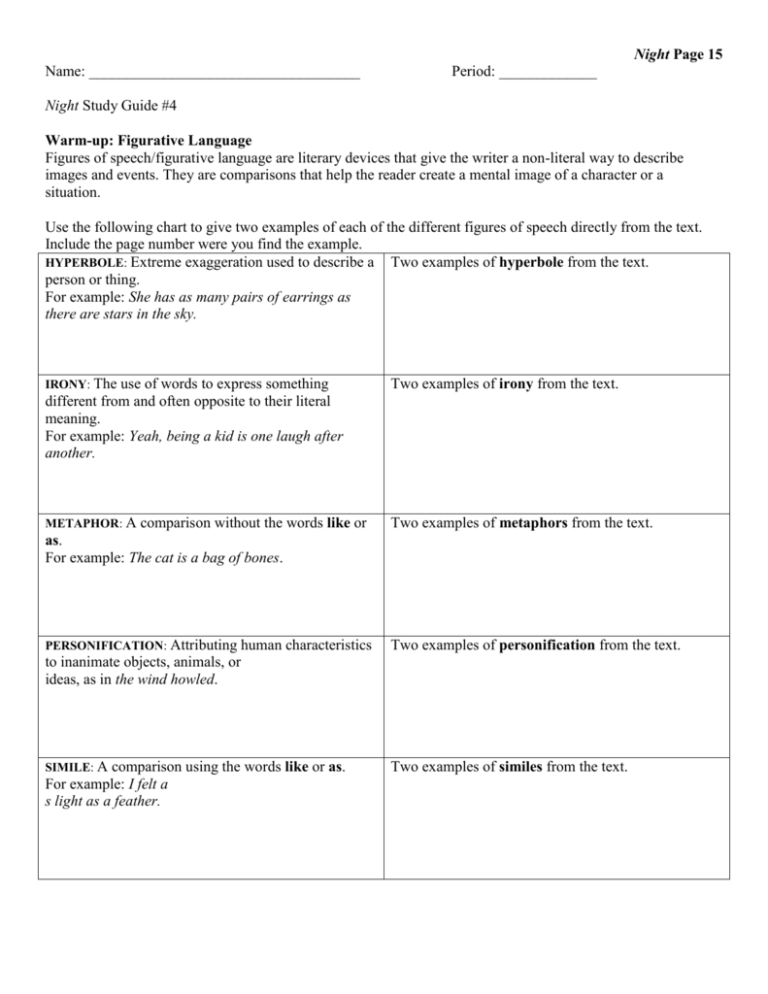
Night Page 15 Name: ____________________________________ Period: _____________ Night Study Guide #4 Warm-up: Figurative Language Figures of speech/figurative language are literary devices that give the writer a non-literal way to describe images and events. They are comparisons that help the reader create a mental image of a character or a situation. Use the following chart to give two examples of each of the different figures of speech directly from the text. Include the page number were you find the example. HYPERBOLE: Extreme exaggeration used to describe a Two examples of hyperbole from the text. person or thing. For example: She has as many pairs of earrings as there are stars in the sky. IRONY: The use of words to express something different from and often opposite to their literal meaning. For example: Yeah, being a kid is one laugh after another. Two examples of irony from the text. METAPHOR: A comparison without the words like or as. For example: The cat is a bag of bones. Two examples of metaphors from the text. PERSONIFICATION: Attributing human Two examples of personification from the text. characteristics to inanimate objects, animals, or ideas, as in the wind howled. SIMILE: A comparison using the words like or as. For example: I felt a s light as a feather. Two examples of similes from the text. Night Page 16 Vocabulary: Section 5, pages 63-80 Part I: Using Prior Knowledge and Context Clues Below are the sentences in which the vocabulary words appear in the text. Read the sentence. Use any clues you can find in the sentence combined with your prior knowledge, and write what you think the underlined words mean on the lines provided. 1. This day I had ceased to plead. I was no longer capable of lamentation. __________________________________________________________________________ 2. In the depths of my heart, I felt a great void. __________________________________________________________________________ 3. A poor, emaciated, dried-up Jew questioned him avidly in a trembling voice. . . __________________________________________________________________________ 4. Several days had elapsed. __________________________________________________________________________ 5. It was a somewhat feeble argument. __________________________________________________________________________ 6. They were quite simply liberated by the Russians two days after the evacuation. __________________________________________________________________________ 7. It snowed relentlessly. __________________________________________________________________________ Part II: Determining the Meaning Match the vocabulary words to their dictionary definitions. ____1. lamentation A. grief; mourning ____2. void B. steadily; persistently ____3. emaciated C. made thin due to starvation ____4. elapsed D. withdrawing troops or civilians ____5. feeble E. passed ____6. evacuation F. lacking strength, weak ____7. relentlessly G. emptiness Night Page 17 Study Questions: Read through these questions prior to reading. Answer the questions as you read. Give as many details as possible. Section 5, pages 63-80 1. What did the men do on the eve of Rosh Hashana? 2. How did Elie feel while the others were praying? 3. What was Elie's decision about fasting on Yom Kippur? Why did he make that decision? 4. What was Elie's "inheritance" from his father? Why was his father giving it to him? 5. Did the men remember to say the Kaddish for Akiba Drumer? 6. What did Elie dream of when he dreamed of a better world? 7. What happened to the patients who stayed in the hospital instead of being evacuated? 8. What was the last thing the head of the block ordered the men to do before they evacuated? Why? Night Page 18 Chapter journal and sketch. For this unit, you will be asked to keep a sketchbook- journal. This is a combination of sketches about and written responses to the story. You will be required to make an entry for each chapter in the novel. Create a title for each chapter based on what happened in the chapter. Also date each entry. Sketch memorable scenes from the chapters. Even if you do not consider yourself a good artist, try to make some sketches. Use colors that remind you of the mood of the story. The written entries should focus on your response to the literature, and should not merely be chapter summaries. They should include comments about your thoughts and feelings while reading, any questions you have, and predictions about the next chapter. Try to write at least one page for each entry. Choose one important sentence from the book. Copy it word for word in the space provided. Include the page number. Date: Quote, page#: Chapter Title: Illustration of one scene from the chapter: Written response to chapter:
